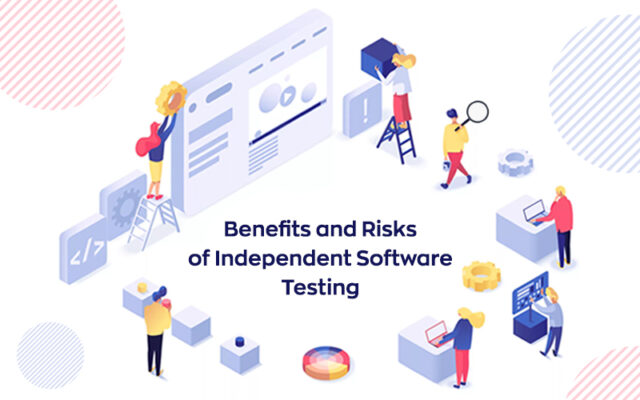Are you comparing whether an in-house QA is better than an external one? Well, organizations have considered in-house QA and earned success in achieving their goals. However, all businesses with an in-house QA have experienced a constant struggle in maintaining a skilled team available on demand. In the software industry, skills and customer demands keep changing and evolving. Most CIOs agree that the cost of failure is higher than the profits from success.
However, an independent software testing company focuses on testing services to address quality with a holistic approach. It prevents any kind of failure. It gives a third-party view of the software app leading to efficient testing that meets customer expectations. With independent testings, more defects are identified as compared to testing carried out by the project teams. The software testing cycle is not compromised due to lack of time or budget and independent testers adhere to achieving customer goals and objectives.
Benefits of Independent Software Testing
Following are a few benefits of independent software testing that make it the right approach to software testing:
- An independent software tester repeatedly finds out more and different defects than a tester working with a development team. They have more experience to fix issues as compared to other testing teams.
- When you hire an independent tester, he brings a different approach to testing that often helps in exposing the hidden defects and problems. Where business analysts, marketing departments, designers and developers work together, things get complicated. Thus, working independently works wonders for testers.
- An independent tester reports to senior management and can report the results without any bias. It may help from pointing out problems in a coworkers’ work or assignment.
- When you hire independent testers they have a separate budget which helps in allocating resources just on the right software testing tools, etc.
- Additionally, testers also find a better career path to senior roles in software testing in some organizations.
Risks of Independent Software Testing
So now let’s have a look at the risks of independent software testing:
Isolation:
Chances are high that the software testers can be isolated. It can take the form of interpersonal isolation from the developers, the designers, and the project team itself, or it can even create isolation from the business objectives.
Communication Issues:
Since independent testers work separately from other team members, they face communication issues when connecting with any business. This may even give birth to some hostile feelings.
Interference in Work:
Some stakeholders tend to interfere with testing performed by independent testers. This can cause delay and developers often blame testers for the delay.
Besides all these shortcomings, most of the organizations have made their way to achieving successful and quality software products, all with the help of software testing companies. Although it is good to have an in-house software testing process, yet it is costly and a single error can affect the project adversely.
Read Dive is a leading technology blog focusing on different domains like Blockchain, AI, Chatbot, Fintech, Health Tech, Software Development and Testing. For guest blogging, please feel free to contact at readdive@gmail.com.





